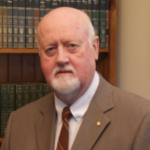We live in absurd times. The nature of our current society and political landscape can only be described as “buffoonery”, and the most appropriate method of dealing with such matters is satire. But so has it always been!
Even as far back as the 1850s, there were satirists – and perhaps none was more skilful than the acclaimed British novelist, Charles Dickens.
Dickens satirised the British Government and its bureaucracy through fictional institutions like the “Circumlocution Office” in Little Dorrit, which he portrayed as a government instrumentality where problems were avoided rather than solved, and where the focus was on maintaining the status quo rather than improving the lives of citizens.
He wrote: “The Circumlocution Office was (as everybody knows without being told) the most important department under government. No public business of any kind could possibly be done at any time without the acquiescence of the Circumlocution Office. Its finger was in the largest public pie, and in the smallest public tart. It was equally impossible to do the plainest right and to undo the plainest wrong without the express authority of the Circumlocution Office.”
Dickens’ “Circumlocution Office” was a place where the focus was on “How Not to Do It” rather than “How to Do It Right”, thereby highlighting the inefficiencies and counterproductive nature of the bureaucracy at that time. His was a powerful social commentary, highlighting the shortcomings of the Victorian Government and advocating for reform and a more just and efficient system.
More recently (in the 1950s) an American academic named Horace Miner published a paper in American Anthropologist entitled “Body Ritual among the Nacirema” which described the customs and habits of a little-known tribe then living in North America known as the “Nacirema”.
He wrote: “Nacirema culture is characterised by a highly developed market economy which has evolved in a rich natural habitat. While much of the people’s time is devoted to economic pursuits, a large part of the fruits of these labours and a considerable portion of the day are spent in ritual activity. The focus of this activity is the human body, the appearance and health of which loom as a dominant concern in the ethos of the people. While such a concern is certainly not unusual, its ceremonial aspects and associated philosophy are unique.”
Miner’s paper was soon recognised for what it was: a satirical commentary on contemporary American society in the 1950s – and the Nacirema people were (in fact) “American” but spelt backwards. Some of the popular aspects of Nacirema culture described by Miner included: medicine men and women (doctors, psychiatrists, and pharmacists), a charm-box (medicine cabinet), the mouth-rite ritual (brushing teeth), and a cultural hero known as Notgnihsaw (“Washington” spelt backwards). Such ritual purification practices were (he suggested) necessary aspects of human behaviour in Nacirema society with respect to the everyday observance of religious and cultural life.
The lives of average American citizens were clearly observable in Miner’s description – albeit in somewhat whimsical vein.
And so we come to the modern political scene, and the advent of Donald Trump and Elon Musk. In doing so, it becomes obvious that sometimes reality is difficult to differentiate from satire – and in such circumstances humour becomes elusive. It is interesting to note, however, that (on close inspection) there are disconcerting parallels between Miner’s descriptions of the lifestyles and temperaments of the Nacirema people and those of Trump’s MAGA supporters.
Moreover, Trump has recently appointed Musk to be the head of DOGE (the Department of Government Efficiency), in an effort to “modernise federal technology and software in order to maximise governmental efficiency and productivity”. In the process, he has laid off many federal workers and terminated funding related to: diversity, equity, and inclusion, climate change initiatives, foreign aid, consumer financial protection, and scientific research.
The fervour and incompetence with which this has all been done, however, beggars belief – and, on reflection, one can’t help but note the clear similarities between Musk’s DOGE and Dickens’ Circumlocution Office.
Plus ça change, plus c’est la même chose!
It is said that two things define us as “humans”. Firstly, our patience when we have nothing, and, secondly, our humility when we have everything.
A significant part of Western culture derives from the period of the Roman Empire (27 BCE to 476 AD), and one of the more capable of the Roman Emperors was Marcus Aurelius (121 to 180 AD) who was also a notable Stoic philosopher.
The story goes that Marcus Aurelius appointed an assistant to follow him as he walked through the Roman town square among the common people. The assistant’s only role, whenever Marcus Aurelius was praised, was to whisper in his ear, “You’re just a man. You’re just a man”.
In these modern times, one can envisage Donald Trump — perhaps more in the style of Caligula or Nero — with an appointed deputy in the form of Musk walking beside him as he wanders amongst the common people. Inevitably the people bow and scrape, so Musk whispers in Trump’s ear (while giving a Nazi salute): “The people are all worthless! Just concentrate on the money!!”
Such is absurdity! Such is satire!

Adrian Lipscomb
Adrian Lipscomb is a retired lawyer, travel-writer, academic and political observer. During the 1980s he worked in policy areas with the Department of Defence in Canberra and with the Joint Intelligence Organisation (JIO – now called the “Defence Intelligence Organisation”). In the mid-1990s he volunteered in the Solomon Islands, and was the co-ordinating author of the 1998 edition of the Lonely Planet Guide to PNG. In 2015 he was awarded the OAM. He currently lives in Urunga, NSW.
